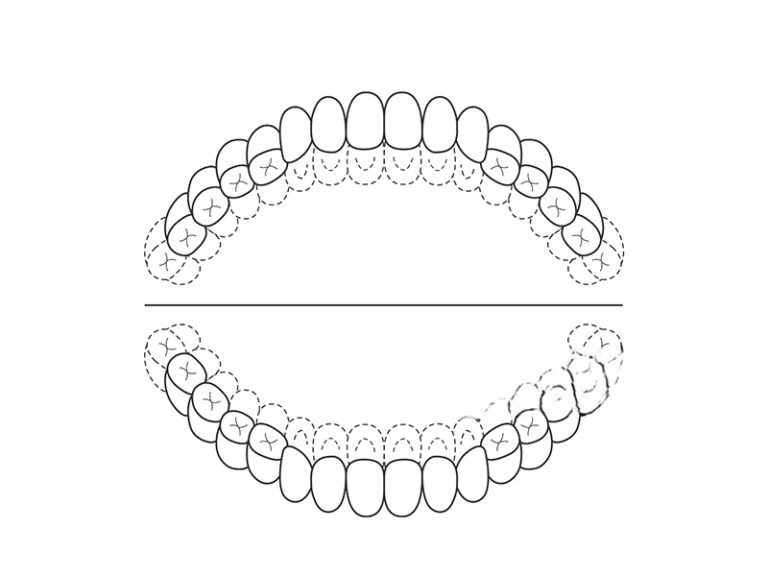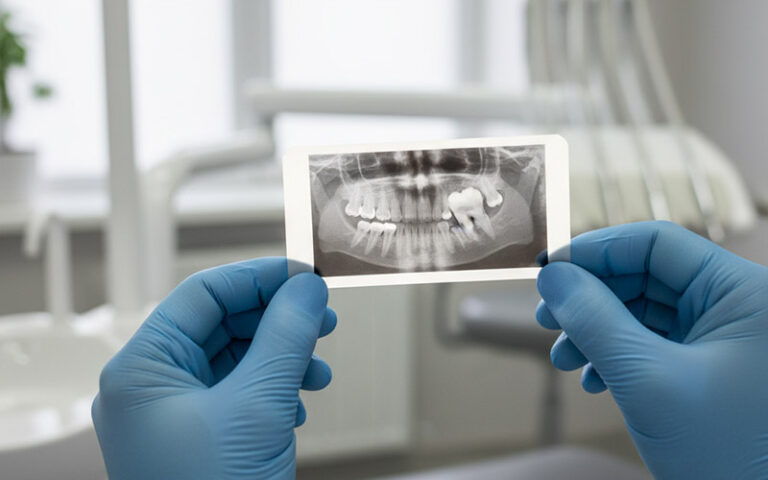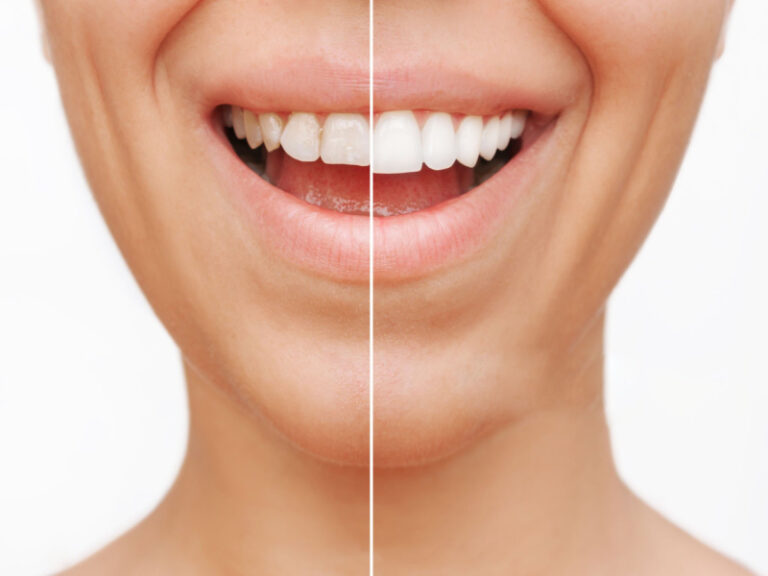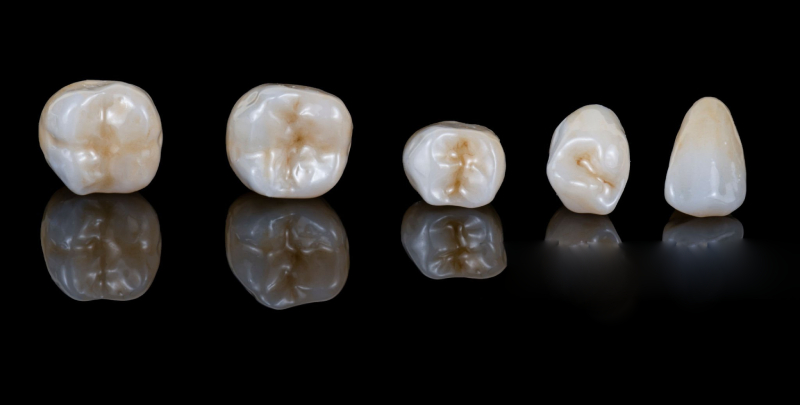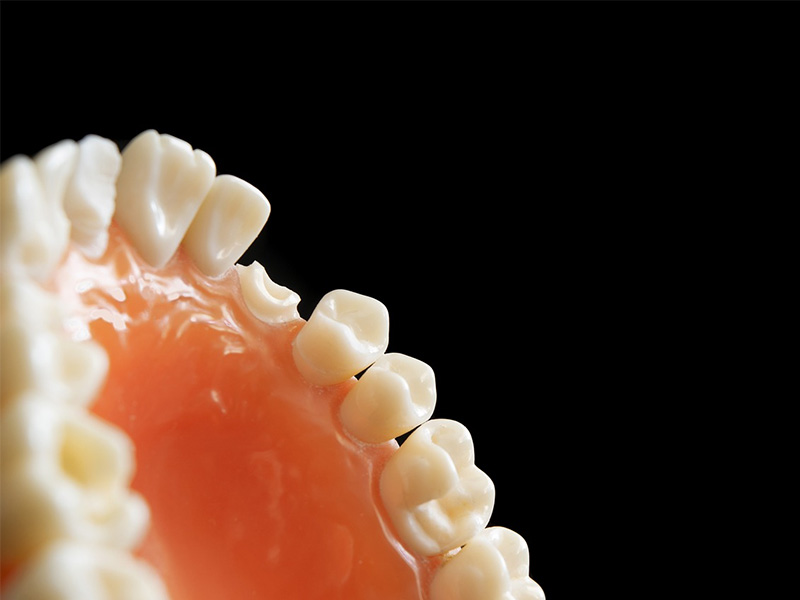
Pros and Cons of Dentures vs. Dental Implants: A Complete Guide to Your Tooth Replacement Choices
If you’ve ever lost a tooth—or a few—you know that moment can really shake you. It hits your confidence and your health. I’ve watched family go through it, and I’ve seen the struggle in my dental office over the years. Picking between dentures and dental implants isn’t easy. I wrote this guide to help you figure out the good, the bad, and the little things about each option, using what I’ve learned from my patients and my own life. My main goal? To set out everything you need so you can make a choice you’ll feel good about for years.
Table of Contents
Introduction: Finding Your Way After Tooth Loss
Losing teeth always made me nervous, and not just as someone who works in the field, but as someone who’s seen what it does to people I care about. It can sneak up on you—eating gets hard, your smile feels off, and your health can even take a turn. After helping a lot of patients decide what to do about missing teeth, I’ve learned it’s a tough call: should you go with old-school dentures or try dental implants?
Both are pretty normal ways to get your smile and chewing back. They each have fans, but neither is perfect. I’m here to help, using stories and everyday examples, so you’ll know what you’re really getting yourself into.
Getting to Know Traditional Dentures
What Are Dentures?
When I started out, the most common question I heard was, “Are dentures the only thing I can do?” Dentures are just take-out-and-put-back-in replacements for lost teeth and the gum area. Some do all your teeth, some just fill in a gap or two.
Dentures sit on your gums, and over the years a lot of people have used them. I’ve seen how a new denture can make someone feel alive again. Other times, people really get annoyed—things don’t fit right, glue doesn’t hold, and it’s a real headache.
Types of Dentures
I’ve made a lot of dentures over the years, so let me keep it simple:
- Full Dentures: These go in if you’re missing all your teeth on the top or bottom. “Immediate” means they go in right after you lose your teeth; “regular” ones go in after you’ve healed up.
- Partial Dentures: If you’re just missing a few teeth, think of these as a puzzle piece—they fill the gap and clip to your real teeth.
- Overdentures: These are sort of in-between choices. Sometimes, they rest on your last natural teeth or even on implants, but come out at night like regular dentures.
When I help folks pick, I don’t just talk about covering up missing spots. Eating, your smile, and how you’ll clean them matter too.
Good Things About Dentures
Not everybody wants surgery or can spend a pile of money. This is where dentures are a win:
- Affordable Up Front: Dentures don’t cost as much at the start. If you’re worried about spending too much, this really helps.
- No Surgery Needed: No needles or drills for traditional dentures. Some people really want to avoid any cutting.
- Quick Solution: You can get dentures in just a couple weeks, which is fast if you want to hide missing teeth quickly.
- Fits Almost Everyone: Even if you’ve lost a lot of bone in your jaw (pretty common), you can usually still get dentures.
- Easy to Change: If you don’t like them, you can easily swap them for a different kind or move to implants later down the line.
I remember Mrs. Fields. Surgery frightened her but she really wanted her smile back. We got her set up with full upper and lower dentures. To see her look in the mirror and smile again was a moment I’ll never forget.
Downsides of Dentures
Sure, dentures aren’t all sunshine. Here’s what I’ve seen, both in the office and in studies:
- Can Feel Loose or Awkward: Even if a denture fits well, it might slide around when you talk or eat. I’ve seen people stay quiet at parties because they worry their teeth could move.
- Harder to Eat and Talk: Cutting a steak or biting into an apple isn’t easy with dentures. Most folks get back only a small part of their old biting power.
- Bone Loss Gets Worse: Losing your teeth means the bone in your jaw can start to wear away. Dentures don’t stop this, so they can get looser over time.
- Everyday Chores: At night, you have to take them out, clean them, and sometimes use sticky glue to hold them in place the next day. It adds up.
- Shorter Lifespan: The best dentures still need new linings or total replacements every few years because your mouth changes shape.
- May Not Look or Feel Real: Some dentures look great, but even the best ones might not feel quite like natural teeth. I’ve had people say they just miss the real thing.
My uncle was pumped at first because dentures were cheaper. By the third year—after lots of refits and sore spots—he started wishing he’d picked something else.
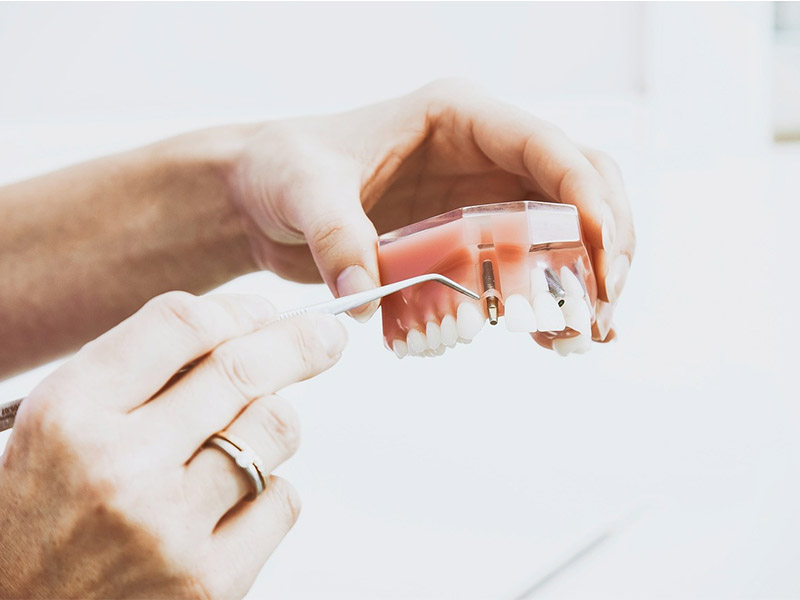
Getting to Know Dental Implants
What Are Dental Implants?
Dental implants really turned the dental world on its head. The first time I watched one go in, it felt like a scene from a sci-fi movie. Here’s the easy version: Implants are small posts, usually made of metal, that go into your jaw to work as fake tooth roots. A “cap” or “crown” goes on top so it looks just like a real tooth.
I’ve placed loads of these, and I can say—implants bring back more than just teeth. They help you eat, help you look like yourself, and can even fix the shape of your face.
Types of Dental Implants
Implant choices go further than most people think. Here are the basics I use in my office:
- Single Tooth Implants: Lost just one tooth? This does the job.
- Multiple Tooth Implants (Bridges on Implants): Missing more than one? This fills in a row without messing with the teeth you still have.
- Full Row Implants: Also called All-on-4 or All-on-6, which means four or six implants hold one full set of teeth. Good if you’ve lost almost everything but want something solid and fixed.
We can use different metals—almost always titanium, sometimes ceramic. I always go through the choices to match what the patient can afford, what their jaw looks like, and how healthy they are.
Good Things About Dental Implants
I really think implants are the best way to fix tooth loss. Here’s what I see all the time:
- Lasts a Long Time: Take care of them, and implants may last as long as you do. I’ve seen them go for 20 years or more, sometimes a lifetime.
- Keeps Bone Healthy: Unlike dentures, implants tell your jaw bone to stay put. You won’t lose that strong chin or jaw line over time.
- Feels Rock Solid: Once they fuse to your bone, they aren’t moving. Go ahead and chomp down on whatever you like.
- Easy Eating and Talking: Most people don’t notice much difference from natural teeth. You get almost all your old bite back.
- Looks Great: Done right, an implant looks exactly like a real tooth—even you’ll forget which is which.
- Stands Alone: Implants don’t lean on nearby teeth, so you don’t have to shave down or glue to anything that’s still healthy.
- Easy to Clean: Just brush and floss like your regular teeth. No soaking or messy glue.
David was one of my most memorable cases. He hated his dentures, smiled less, and stopped eating his favorite foods. Implants gave him back the things he thought he’d lost for good.
Downsides of Dental Implants
But hold on—implants aren’t perfect. Here’s what matters:
- More Expensive Up Front: Implants can be pricey at the start, and that stops some people from considering them.
- Surgery Is Needed: You’ll need a minor surgery for implants. That means some risk—an infection, bleeding, or nerve problems, though these are rare.
- Takes Time: You won’t walk out of the office the same day with a finished smile. It can take a few months before you’re all done.
- Not for Everyone: If your bone is too thin or you have health issues, sometimes you can’t get implants. Smokers or people with blood sugar problems have to be careful.
- Possible Trouble: Sometimes, though not often, an implant doesn’t work out—it can fail or get rejected. Good hygiene and dentist visits help avoid this.
Some of my patients really worry at first—they’re afraid of surgery or the price tag. But the ones who go ahead almost always say the peace of mind is worth it.
Dentures vs. Dental Implants: Quick Comparison
Over time, I wrote down all the main things my patients ask about. Here’s the simple side-by-side:
| What Matters | Dentures (Regular) | Dental Implants |
|---|---|---|
| Price at Start | Lower ($1,500–$8,000 for each full set) | More ($3,000–$6,000 per tooth; $20K+ full) |
| How Long They Last | 5–10 years; often need fixing | 15–25+ years, sometimes more |
| Bone Health | Bone wears away over time | Keeps bone strong and healthy |
| Chewing Strength | 20–30% of your old teeth | 90–100% of your old teeth |
| How Secure They Feel | Can move or slip; need glue | Solid—feels like real teeth |
| Surgery Needed? | No | Yes |
| Cleaning Routine | Take out at night, clean, may use glue | Brush and floss like normal |
| Looks | Can look fake | Looks like your natural teeth |
| Who Can Get Them | Almost anyone | Needs healthy bone and gums |
| Insurance Help | Usually covered | Can be tricky, sometimes not covered |
I always point out: these numbers aren’t everything. What you want in everyday life is just as important as these facts.
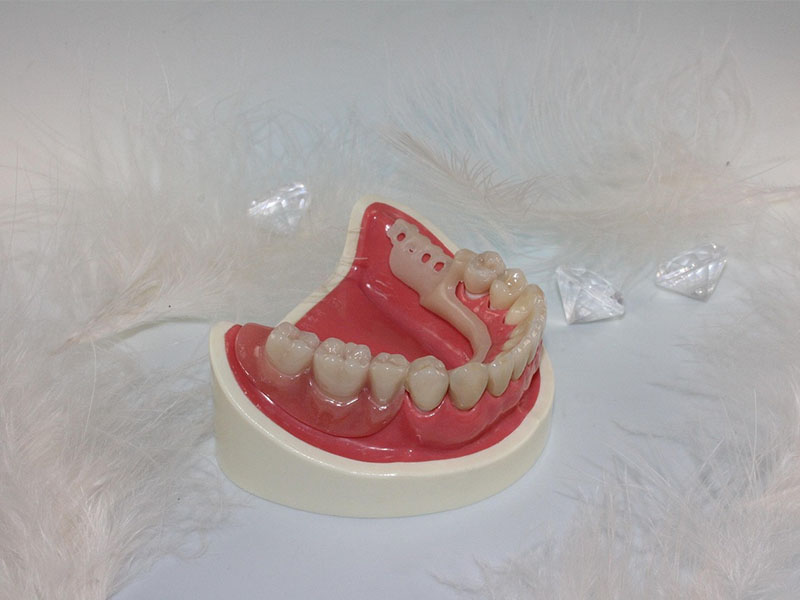
Things to Think About When Deciding
I see so many people get stuck comparing choices. I tell them to think about these big five things:
Your Budget and Insurance
Check what your insurance pays for. Most plans pay for dentures, but implants often get left out or only partly covered. Implants might seem expensive, but in the long run, you might pay less because they don’t need replacing as often.
Your Mouth Health and Bone Strength
If your jaw bone is too thin or your gums are in bad shape, you may only be able to get dentures—unless you try something like a bone graft. Get an X-ray before you decide.
Your Health and Medical Background
Surgery isn’t for everyone. Some sicknesses, slow healing, or certain medicines can mess with how well implants work. Your dentist will talk you through this.
Your Daily Life and Hopes
If you don’t want to mess with glue or taking teeth out at night—or want to bite into an apple again—implants might be best. But if you want something you can change or take out easily, dentures make more sense.
Your Long-Term Plans
Do you want to fix this once and not deal with it again? Or do you need a cheaper fix right now, even if it means more work later?
Mixed Choices & Other Options
You don’t have to just pick one or the other! I’ve done lots of “in between” fixes for people who can’t get full implants but want something better than basic dentures.
Implants Holding Dentures
These are dentures that snap onto two or four implants. They still come out at night, but they stay put much better during the day. Not as expensive as a whole row of implants, and they slow down bone loss.
Dental Bridges
If you just have a couple teeth gone, a bridge—held up by either implants or your own teeth—can fill the gap and look real without costing as much as a full implants job.
Sara comes to mind—a patient who was honest that surgery wouldn’t work for her. Even so, she got a big boost in comfort and chewing after switching to an implant-held denture.
Talking to Your Dentist: Your Next Move
I always tell people: You can look up the facts online, but only a dentist can really help with your mouth.
Why You Need a Personal Check
Your teeth, your gums, your life—no two people are the same. A dentist will check your jaw, your health, and talk with you about what fits your needs.
Who Should You See?
- General Dentist: Start here for most things.
- Specialist (Prosthodontist): Try this if you want a real expert for a tricky case or want the best look possible.
- Oral Surgeon: You need this for implants or questions about bone.
Come with your own questions, be honest about your worries, and ask for clear cost estimates. The best dentists want you to feel in control and confident—so you end up smiling more in the end.
Ending Thoughts: How to Make a Good Choice for Your Smile
Here’s what I’ve learned: There’s no “one-size-fits-all.” Don’t let anyone tell you what you have to do without explaining why.
Main differences—price, need for surgery, how they feel, how they look, and how they affect your health. Take time to think: Would you rather have the long-term comfort and strength of implants, or the low cost and flexibility of dentures?
From what I’ve seen, the happiest folks aren’t the ones with “perfect” teeth, but the people who made a choice that really fits their needs—not what someone else was selling.
Ask your dentist for advice that matches your health, your wallet, and your goals. And never forget how much being able to smile can mean.
Still hunting for the “right” answer? The best choice is the one that suits your life, health, and what you want from your smile. Make it your own.
Curious about your next steps or wondering about something I didn’t cover? Talk to your dentist. You—and your smile—deserve answers that really fit.

